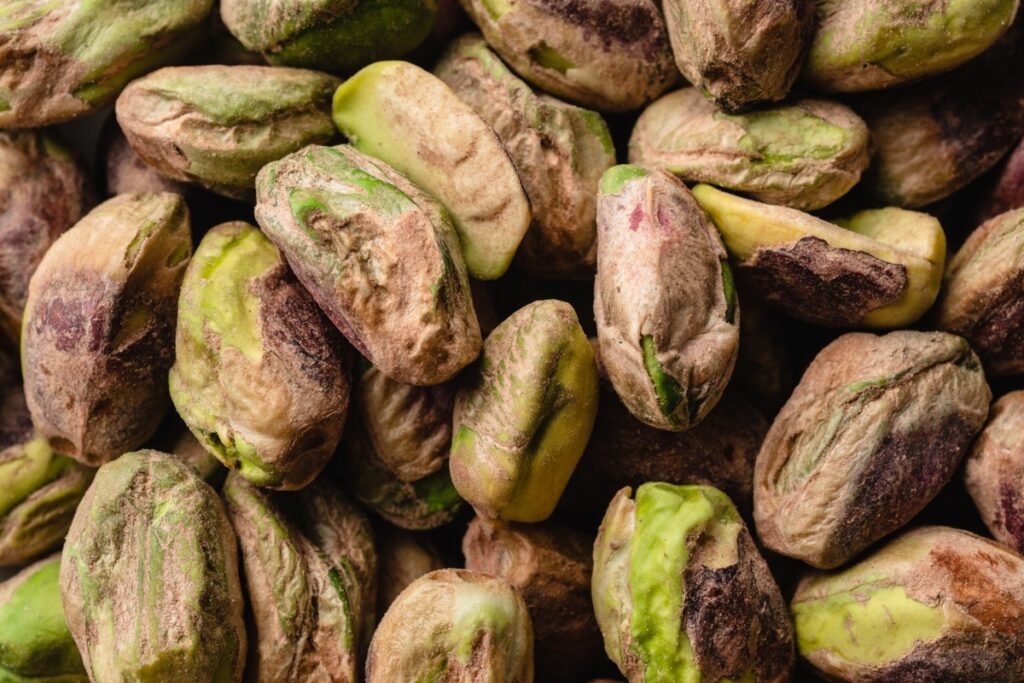Benefits of Pistachios in Diabetes, Adults with diabetes 2 pistachios per day improve neural control of the heart
According to Penn State researchers, eating pistachios may lessen the body’s response to ordinary stress in persons with type 2 diabetes.
“Two servings of pistachios a day reduced vascular constriction during stress in individuals with diabetes and enhanced neurological regulation of the heart,” said Sheila G. West, professor of biobehavioral health and nutritional sciences. “Nuts are heavy in fat, but they also include beneficial lipids, fibre, potassium, and antioxidants. Because patients with diabetes have a higher risk of heart disease, nuts are an important part of a heart-healthy diet for them.”
Pistachios were tested on responses to standardised stress tests in patients with well-controlled Type 2 diabetes who were otherwise healthy, according to West and her colleagues. They employed a randomised, crossover trial design that included all meals. The number of calories in each diet was the same.
After two weeks on the typical American diet – containing 36 percent fat and 12 percent saturated fats – participants were randomised to one of two test diets. During the four-week test diets, participants ate only food supplied by the study. The researchers reported the results of this study in a recent issue of the Journal of the American Heart Association.
Study Protocol
Test diets included a standard heart-healthy diet – 27 percent fat and 7 percent saturated fat – and a diet containing two servings per day of pistachios – about 3 ounces or 20 percent of calories from pistachio nuts. The typical research participant consumed about 150 pistachio nuts per day.
The pistachio diet contained 33 percent fat and 7 percent saturated fat. Half of the nuts consumed each day were salted and half were unsalted. At the end of each four-week diet period, the researchers measured blood pressure and total peripheral vascular resistance at rest and during two stress tests – a cold water challenge and a confusing mental arithmetic test.
“During the stress tests, blood vessels remained more relaxed and open after the pistachio diet”
Although pistachios had no effect on laboratory blood pressure readings, real-world blood pressure measurements (recorded by an automated monitor) were considerably lower following the pistachio meal. These assessments were carried out by, a former graduate student in biobehavioral health.
Discussion
“We found that systolic blood pressure during sleep was particularly affected by pistachios,” she said. “Average sleep blood pressure was reduced by about 4 points and this would be expected to lower workload on the heart.”
The pistachio diet was proven to reduce vascular constriction during stressful situations, according to the study. The burden on the heart is lessened when arteries are dilated. One hand was immersed in freezing water for two minutes as part of the physical challenge.
“Most people have a strong vascular constriction response to this cold stressor,” West added. “The pistachio diet reduced the vascular response to stress when compared to a low-fat diet.”
When participants were given a difficult and perplexing mental arithmetic task, the same pattern emerged.
“During the math test, our participants were still upset and angry,” West said. “The pistachio diet lowered their bodies’ stress responses, but nuts aren’t a solution for the emotional distress we experience every day.”
Sauder continued
” “We did not find decreased blood pressure in the laboratory with this dose of nuts, as we did in our previous pistachio trial. The fact that 24-hour ambulatory blood pressure was lower following the pistachio diet surprised and pleased us.”
Heart rate variability, a measure of how well the nervous system governs heart function, also improved, according to the researchers. These findings suggest that pistachios stimulated the vagus nerve, a key element of the parasympathetic nervous system that can be compromised by diabetes.
“These improvements in sleep blood pressure, vascular response to stress, and vagal regulation of the heart, if sustained with longer-term treatment, could minimise the risk of heart disease in this high-risk group,” West said.
The study was funded by the American Pistachio Growers, previously the Western Pistachio Association. The Clinical Research Center at Penn State, which is funded by the National Institutes of Health, also contributed.
Courtesy : Penn State News

